Questions Of Trust and Ownership: John Banks | Iwi Water Rights and Interests
PM Press Conference - 17 Sept, 2012
By Mark P. Williams
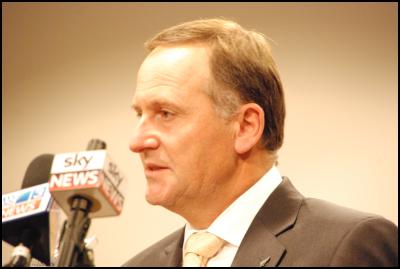
Today's post-cabinet press conference was dominated by questions over the government's attitude towards water rights and the PM's own attitude towards the John Banks controversy. The Prime Minister began by speaking of his successful six day trip to Russia to attend the APEC Leaders meeting, and Japan. He said that President Putin felt confident that an FDA agreement could be reached with New Zealand, and said that he had been invited back to Russia and hoped to accept.
In Japan, the PM took part in a commemoration for 60 years of diplomatic relations between the two countries; he was accompanied on this stage of his trip by eleven Japanese language students from Christchurch. He also addressed a memorial service to the victims of the Great East Japan earthquake, where he acknowledged the shared experience of New Zealand and Japan the 28 Japanese students who lost their lives in the Christchurch earthquake, and thanked Japanese urban search and rescue services for their response. He added that New Zealand and Japan's experience of natural disasters gives the two countries a special bond and he and Prime Minister Noda of Japan are keen to build on the relationship between them and put in place policies and infrastructures to limit losses during future earthquakes and tsunamis.
The PM then spoke about Minister Paula Bennett's Social Security Benefit Categories and Work Focus Amendment Bill was announced. He described it as a simplification process designed to focus on preparation for work, part of the Government's position that those who can work should work.
He also announced that the Government would hold six hui in the next ten days to consult with Iwi over rights and interests, dealing with the Waitangi Tribunal's "shares plus" concept. The Prime Minister was careful to emphasise that these were hui with iwi and hapu who have specific connection to the freshwater and geothermal resources used by the state owned power companies, implicitly ruling out questions of wider rights and interests. He said the government would listen carefully to the Iwi, talk through the issues and explain the government's view.
He said Iwi were invited to write to the Government by Friday 5th October.
The PM outlined his schedule for the week ahead and took a wide variety of questions from the Press Gallery, including queries regarding the offshore ownership of New Zealand companies, progress made during the PM's meetings in Vladivostok and the general state of the economy; these matters were dominated by questions relating to Maori rights and interests in water, and questions about the Prime Minister's support for John Banks.
Questions
The PM was asked whether the government should take advice over the bid to takeover Fisher & Paykel by Chinese company Haier. He said that he had not seen advice on the matter.
The PM was asked whether it was disappointing that a company devoted to innovation, research and development would move offshore.
The PM was asked whether there was anything he could do within his Ministerial role to affect the company's ability to be taken offshore. He responded that it would be a question which he would have to examine in respect to the law.
The PM was asked, following the Maori King's comment that Maori own water, and Pita Sharples comments that "ownership" has different meanings within Maoridom from those commonly accepted within Pakeha culture, whether this meant that there needed to be a more detailed definitional discussion of the precise meaning being applied to the question of rights and interests in water. The PM responded by reiterating the government's position that nobody owns water.
The PM was asked how he responded to the suggestion that the proposed consultation process was too narrow because it only focused on select Iwi. He responded that there were two different "streams of work" being confused: one around rights and interests, and the other around the mixed ownership model (which limits the Crown's ability to acknowledge rights and interests).
The PM was asked how he responded to comments by a spokesperson of King Tuheitia that he was being "culturally ignorant". He disagreed firmly.
The PM was asked further questions about his position on the "shares plus" model proposed by the Waitangi Tribunal, and again restated that the Government position was that nobody owns water and that it was unacceptable. He went on to talk, and take further questions on co-governance models as applied to the Waikato river and distinctions between process and frameworks for recognising rights and interests that the government believe to be valid.
The PM was asked whether he had had a chance to read the police report on John Banks. He responded that he had no.
The PM was asked whether he would be reading the report and he responded that he would not be reading the report because nothing had changed.
Questioned further about his current position on the John Banks controversy and whether he still supported him. He responded that he did because the recent revelations were a political attack by the Labour party and that nothing had actually changed.
The PM was asked what was different in this instance from Helen Clark standing by Winston Peters. He responded that in that instance different evidence had come to light, and in this case it had not. He added that he still accepted John Banks at his word.
The PM was asked more extensive questions about the precise nature of the assurances given to the PM's office by Mr Banks. He responded that there was no case to be held against Mr Banks and it was not his job as Prime Minister to conduct a forensic analysis of the released documents. The PM emphasised repeatedly that the discussion was based on different interpretations of documents and conversations about documents. The PM added that the test is whether Mr Banks had misled the Prime Minister, and that he did not find that to be the case.
The PM was asked whether he had had any advice on the question of Spring Creek mine and Solid Energy. He responded that he was waiting for a report on the matter in about a week.
Questions then returned to John Banks. Throughout, the PM emphasised that he had no evidence to suggest that Mr Banks had misled him and that he had complied with the law.
The PM was asked whether his discussions in Vladivostok had left him more or less optimistic about the current global financial situation. He responded that he viewed the world with a "healthy dose of realism" that it was four years since the financial crisis, and would not necessarily get easier soon, but that he thought leaders remained focused on dealing with issues they could have an effect upon.
The PM was asked whether he felt that the New Zealand economy was unstable. He responded that he felt the economy to be in good shape.
The PM was asked whether he would be looking into police resource policy following the two recent deaths in Paraparaumu. He said he could not comment specifically on that matter.
The PM was asked whether it was still his position that it would not make sense to send NZSAS troops back into Afghanistan in a combat role; he confirmed that it was.
The PM was asked whether Prime Minister Noda had signalled his intentions regarding territorial disputes with China and South Korea while he was in Japan. He responded that he had only spoken generally about territorial rights issues.
Click a link to play audio (or right-click to
download) in either
MP3 format or in OGG format.
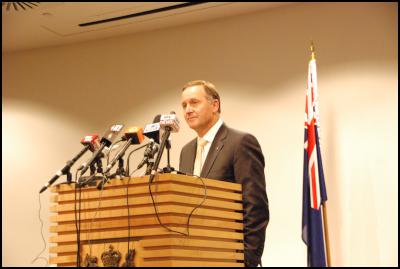
Click for big version.
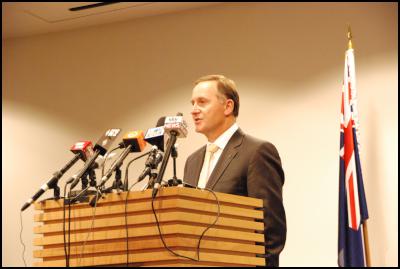
Click for big version.
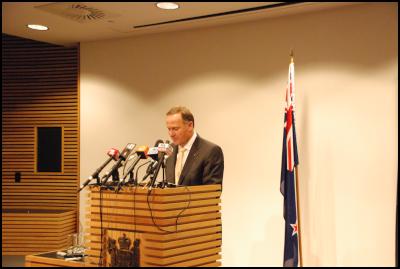
Click for big version.
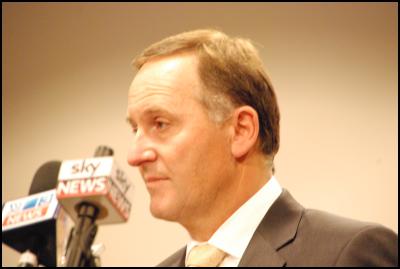
Click for big version.
ENDS



 Binoy Kampmark: Militarising Europe - The EU Defence Spending Bug
Binoy Kampmark: Militarising Europe - The EU Defence Spending Bug Ian Powell: Brown’s Surgery Puts Health System At Increased Risk
Ian Powell: Brown’s Surgery Puts Health System At Increased Risk Ramzy Baroud: The Monkey’s Tail - How Netanyahu’s Ambitions Expose Israel’s Vulnerabilities
Ramzy Baroud: The Monkey’s Tail - How Netanyahu’s Ambitions Expose Israel’s Vulnerabilities Keith Rankin: Invoking Munich, 'Appeasement', And The 'Lessons Of History'
Keith Rankin: Invoking Munich, 'Appeasement', And The 'Lessons Of History' Peter Dunne: Dunne's Weekly - School Lunches Fiasco Shows What Happens When Social Policy Loses Focus
Peter Dunne: Dunne's Weekly - School Lunches Fiasco Shows What Happens When Social Policy Loses Focus Gordon Campbell: On The Government’s Stubborn Refusal To Invest For Growth
Gordon Campbell: On The Government’s Stubborn Refusal To Invest For Growth